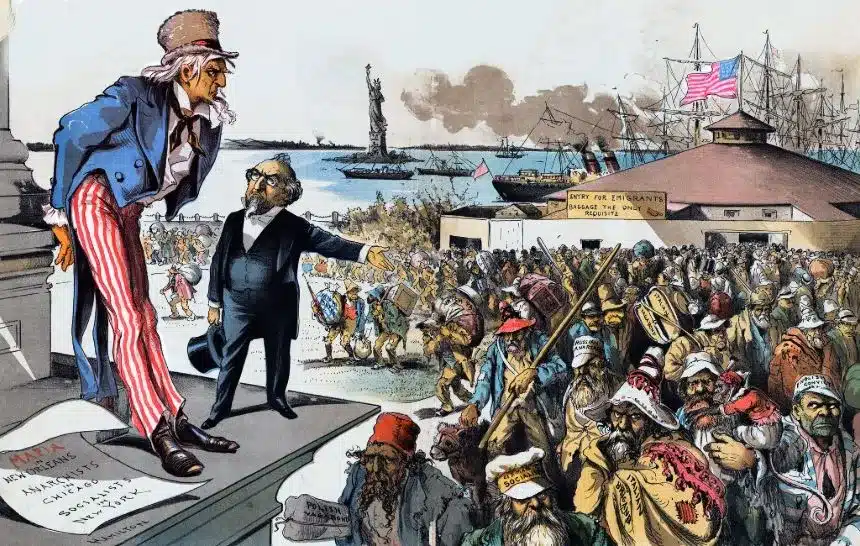A New Political Phenomenon
In an era marked by rapid global changes, a distinct political wave has emerged, known as Civilizational Populism. This political phenomenon, transcending traditional boundaries of left and right, dives deep into the cultural and civilizational ethos of societies. Civilizational Populism is not solely a reaction to economic grievances; it is an ideological stance that highlights civilizational pride and identity, often in opposition to perceived external influences or threats.
This article delves into the intricate dynamics of Civilizational Populism, a term that encapsulates a political strategy that leverages civilizational identity as a key mobilizing force. It emerges in diverse forms across continents, from the rhetoric of political leaders in Europe and Asia to the evolving political landscape in the Americas. It challenges the conventional frameworks of understanding political alignment, advocating a return to cultural roots and distinct identities.
As we navigate through the complexities of this global phenomenon, the article aims to shed light on how Civilizational Populism influences political discourse, policy-making, and social cohesion. By examining various global instances, we explore its impact on shaping national narratives and its implications for the future of international relations and domestic politics.
Historical Roots and Evolution
Initially, Civilizational Populism echoed the concerns of those who perceived a loss of cultural identity and sovereignty due to global forces. This sentiment often manifested in a nostalgic longing for a past era, perceived as more aligned with traditional values and national character. This form of populism, deeply rooted in the desire for cultural preservation, has historically served as a rallying cry for maintaining civilizational integrity.
Civilizational Populism has a profound impact on social cohesion.
The digital age, with its advancements in technology and mass communication, has significantly influenced the spread and adaptation of Civilizational Populism. Social media and the internet have become pivotal in disseminating civilizational narratives, allowing such movements to rapidly gain momentum and shape public discourse.
Today, Civilizational Populism is not confined to any single region or political system. It manifests diversely across the globe, from the United States to Europe and Asia, each adaptation reflecting unique historical and cultural contexts. Despite their differences, these movements commonly emphasize the importance of civilizational pride and often express skepticism towards globalization’s impact on national and cultural identity.
In understanding Civilizational Populism, one must consider its historical roots and evolution, recognizing it as a significant factor in current global political and social landscapes. This perspective is essential for comprehending the ongoing transformations and the increasing role of civilizational identity in political discourse.
Global Impact and Sociopolitical Implications
Civilizational Populism, transcending traditional political ideologies, has manifested in various forms around the world. In Europe, it has influenced the rise of parties that prioritize national identity and cultural heritage. In the Americas, it has fueled movements advocating for the protection of national values against perceived external threats. This global spread is indicative of a broader discontent with the status quo, where populations increasingly align themselves with identities that transcend national borders.
These movements have significant implications for international relations. Civilizational Populism often challenges global cooperation and multilateralism, advocating for policies that prioritize national interests. This stance has led to a reevaluation of international alliances and agreements, influencing everything from trade policies to environmental commitments.
Domestically, Civilizational Populism has reshaped political landscapes. It has catalyzed debates on immigration, multiculturalism, and national identity, often polarizing societies. This polarization can lead to a more fragmented political environment, where consensus on key issues becomes challenging to achieve.
Furthermore, Civilizational Populism has a profound impact on social cohesion. By emphasizing a particular civilizational identity, these movements can marginalize groups that do not fit within this defined identity, potentially leading to increased social tensions and divisions.
As the world grapples with the implications of Civilizational Populism, it becomes clear that this phenomenon is not just a fleeting political trend, but a significant force shaping the future of global politics. Understanding its impact is crucial for navigating the complexities of our increasingly interconnected world.
Case Studies: Diverse Manifestations
Civilizational Populism, as a global phenomenon, exhibits varied manifestations across different geopolitical landscapes. This section explores case studies from Europe to the Americas, illustrating the diverse ways in which Civilizational Populism influences political discourse and policy.
In Europe, a prominent example is the rise of right-wing parties that embrace Civilizational Populism, advocating for the preservation of national identity against perceived threats from immigration and globalism. These movements often emphasize the protection of Judeo-Christian values as a cornerstone of European identity. The discourse typically highlights a civilizational crisis, positioning these parties as defenders of traditional values against the encroachment of foreign cultures and liberal ideologies.
Balancing cultural identity preservation with embracing diversity will be critical.
In the United States, Civilizational Populism has been evident in political rhetoric that emphasizes American exceptionalism and a return to traditional, often Christian, values. This form of populism often aligns with nationalist sentiments, presenting the U.S. as a bastion of Western civilization under threat from external influences like immigration and international agreements perceived as detrimental to national sovereignty.
In Asia, Civilizational Populism manifests in a different context, often intertwined with religious and ethnic identities. Political leaders in countries like India have employed Civilizational Populism to rally support by emphasizing a return to indigenous values and cultural heritage, at the expense of minority groups.
These case studies demonstrate the adaptability of Civilizational Populism, molding itself to fit the cultural, historical, and political contexts of various regions. While the core themes of civilizational identity, cultural preservation, and opposition to perceived external threats remain constant, the expression of these ideas varies significantly across different societies.
Understanding these diverse manifestations of Civilizational Populism is crucial for comprehending its impact on global politics. It highlights the challenges posed by this form of populism to international cooperation, social cohesion, and the traditional political order.
Critiques and Challenges
Civilizational Populism, resonating with many, also encounters significant critiques and challenges. Critics argue that it often simplifies complex social and political issues into a binary of ‘us versus them.’ Such oversimplification can lead to divisive politics and undermine social cohesion, particularly when civilizational identity marginalizes minority groups, fostering an environment hostile to diversity and inclusivity.
A major critique is its potential to erode democratic principles. Populist leaders may resort to authoritarian tactics while rallying support around civilizational themes, undermining democratic institutions and norms. This trend raises concerns about the long-term stability of democratic systems where it gains a stronghold.
Economically, its often protectionist stance might have unintended consequences. Aiming to protect national interests, such policies can lead to economic isolationism, hindering global trade relationships and economic growth.
Moreover, the rise of this movement has sparked a debate on globalization and technological change. Critics argue that although it may respond to challenges posed by globalization, it fails to offer sustainable solutions to the economic and social issues brought about by rapid technological advancements and a changing global economy.
The challenge lies in finding a balance, addressing legitimate concerns about national identity and cultural preservation while upholding democratic principles, social cohesion, and inclusivity.
Predicting Future Trajectories
Rooted in a sense of civilizational identity, this political stance has shown remarkable resilience and adaptability. Its future will likely be shaped by key factors including global economic trends, migration patterns, and the evolving nature of national and cultural identities. The rise of digital media and social networking platforms will continue to play a pivotal role in shaping and spreading these narratives, allowing them to reach a broader audience and adapt to changing societal narratives.
The potential for this ideology to influence mainstream politics is significant. As traditional political parties address challenges of globalization and demographic changes, they might incorporate elements of it to resonate with broader segments of the population. This could lead to a shift in the political landscape, where the ideology becomes a more integrated part of political discourse.
However, it also faces challenges. Its often divisive nature and the potential for escalating cultural and political polarization pose risks to social cohesion and democratic principles. Balancing cultural identity preservation with embracing diversity will be critical.
In the international arena, this ideology may shape foreign policy and international relations, especially in regions experiencing significant cultural and demographic shifts. The interplay between national interests and global cooperation will be key to watch.
As we move forward, it’s evident that this form of populism will continue as a dynamic and influential force in global politics. Its future trajectories will depend on how societies navigate the complex interplay of cultural identity, globalization, and the challenges of an increasingly interconnected world.
Concluding Reflections on Civilizational Populism
As we conclude, it’s vital to reflect on the pervasive influence of Civilizational Populism in shaping contemporary political narratives. This ideology, deeply entrenched in the cultural and civilizational identity, has undeniably altered the political landscape across various nations. It challenges traditional political alignments, often redefining them through the lens of civilizational identity rather than conventional left-right distinctions.
Civilizational Populism, with its focus on preserving cultural heritage and identity, poses both opportunities and challenges. It resonates with a significant segment of society seeking to uphold traditional values in the face of rapid globalization and cultural changes. However, it also raises concerns about social cohesion, democratic integrity, and the inclusivity of diverse societies.
Looking ahead, the trajectory of Civilizational Populism will likely continue to be a significant factor in global politics. Its future will be shaped by how effectively it addresses the challenges of cultural integration, economic globalization, and the evolving dynamics of national and global identities. The interplay of these factors will determine the role of Civilizational Populism in shaping the political discourse of the future.
Adapted from an academic article for a wider audience, under license CC BY 4.0









